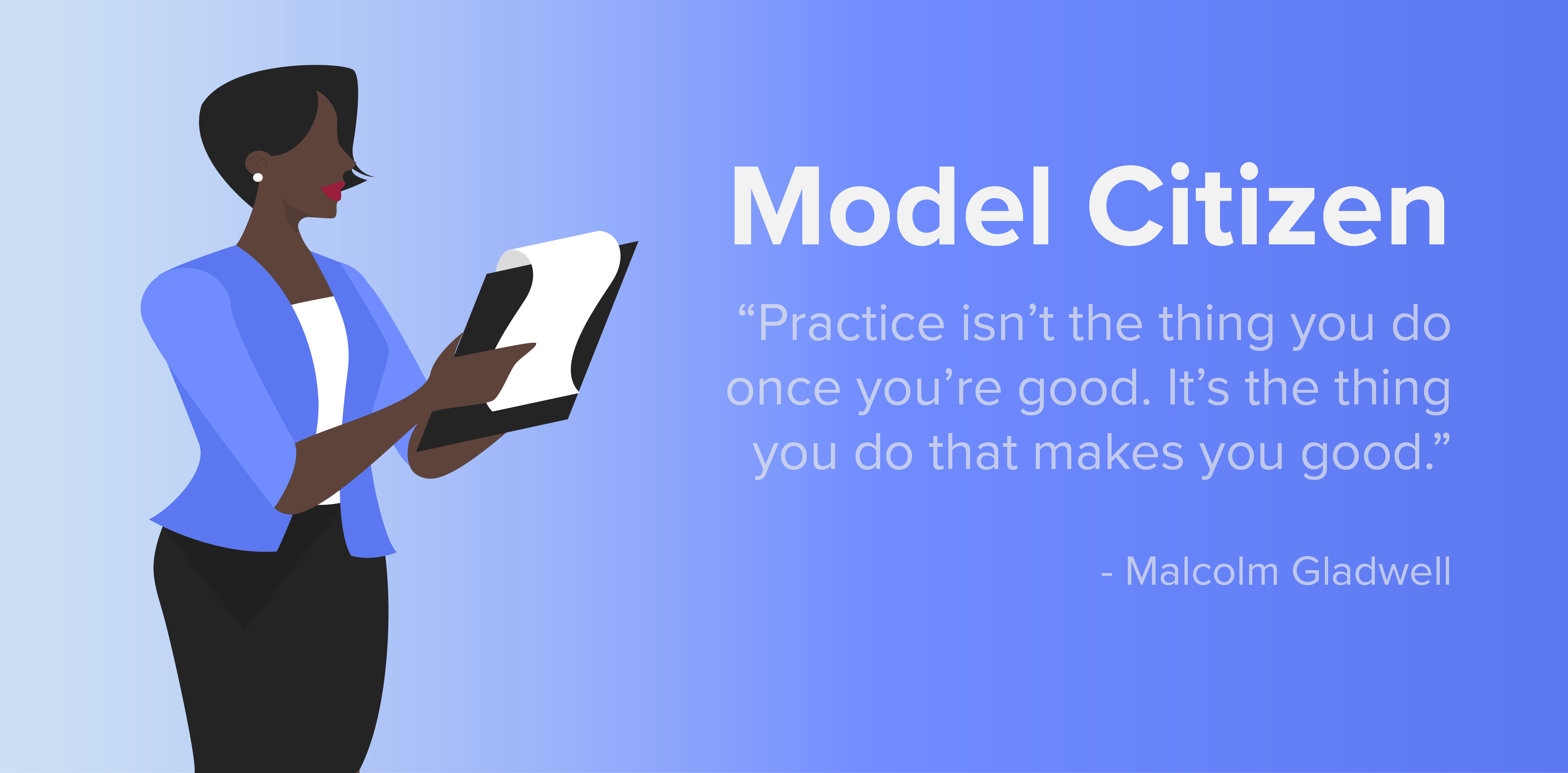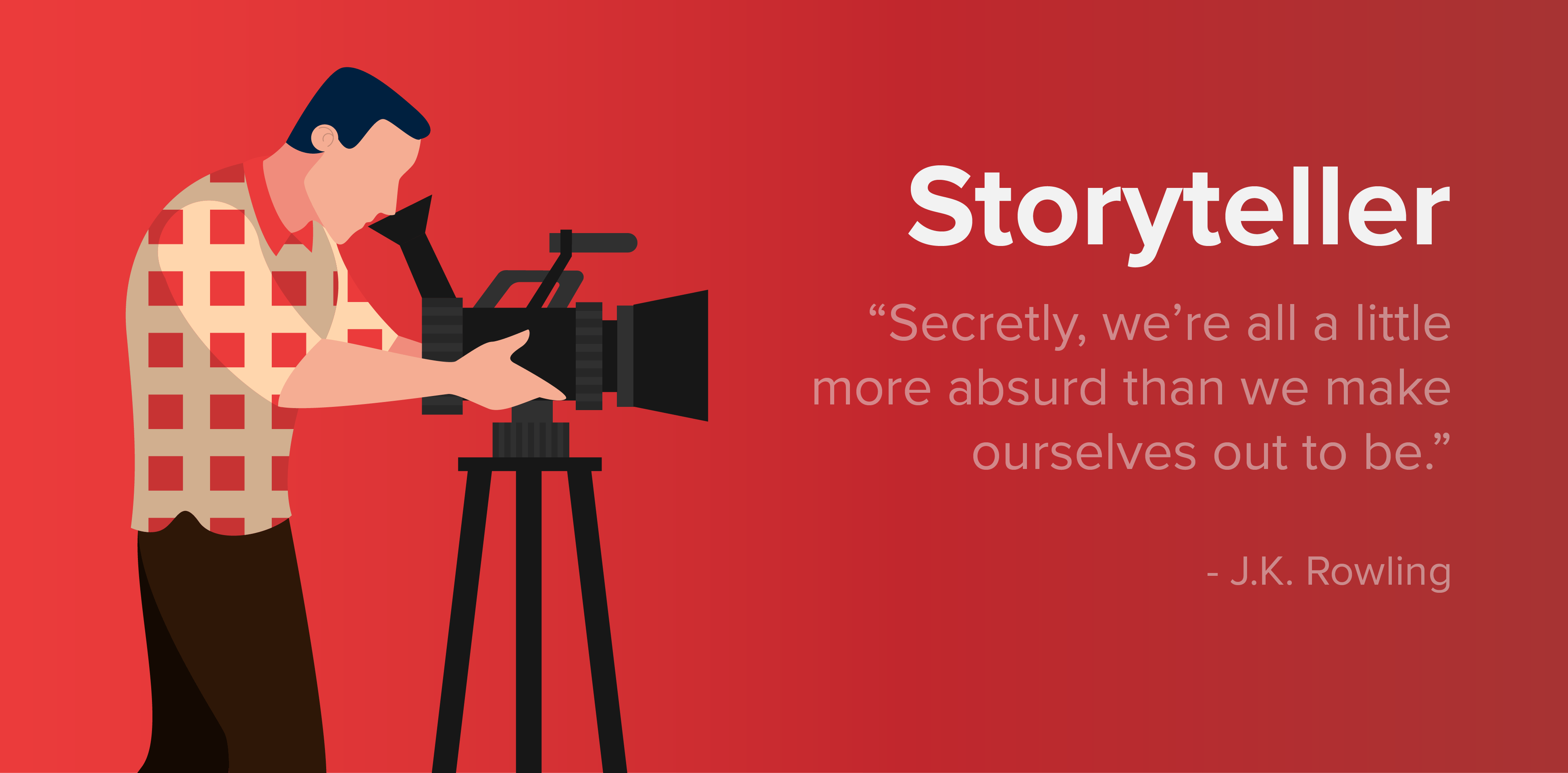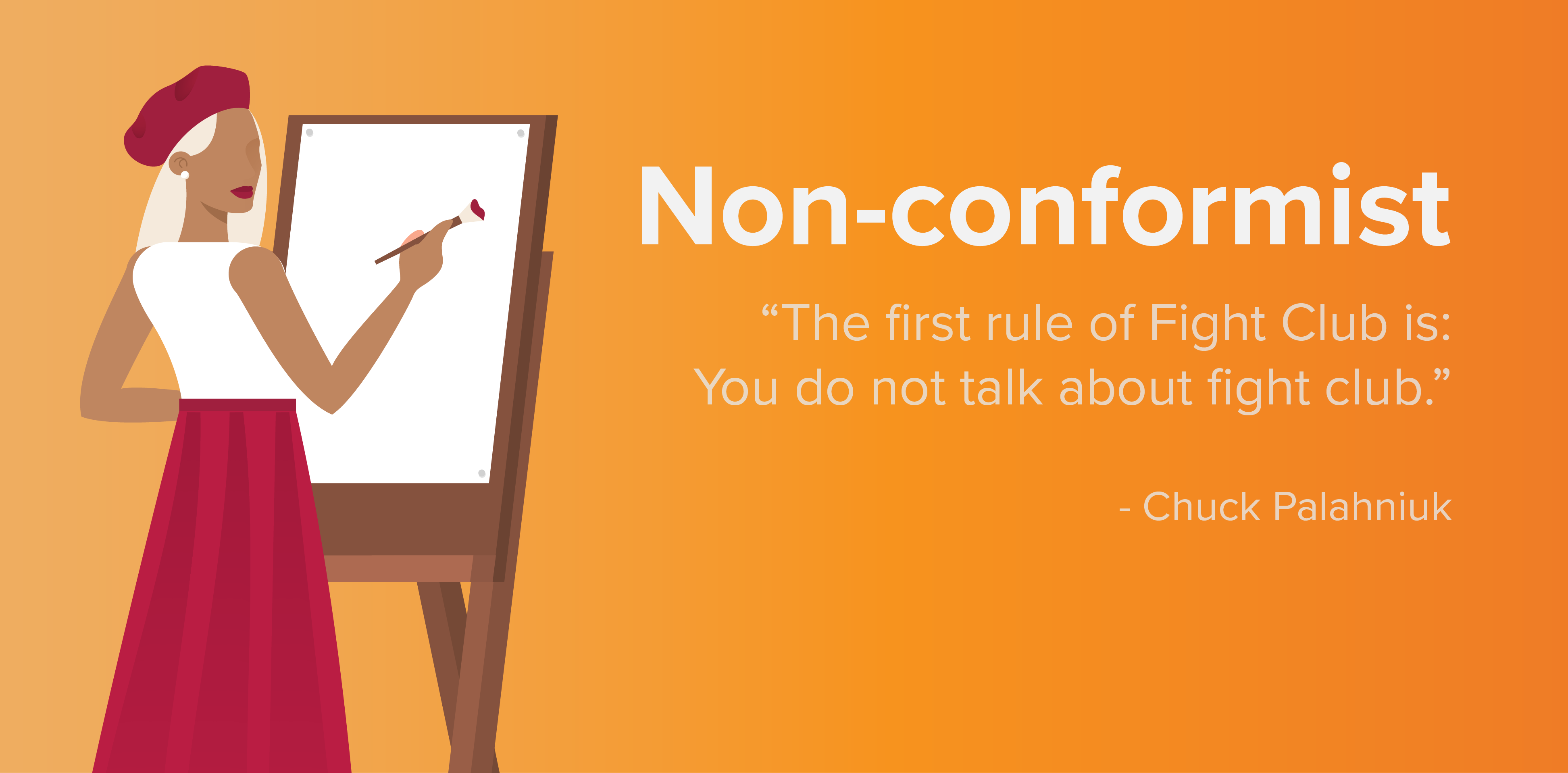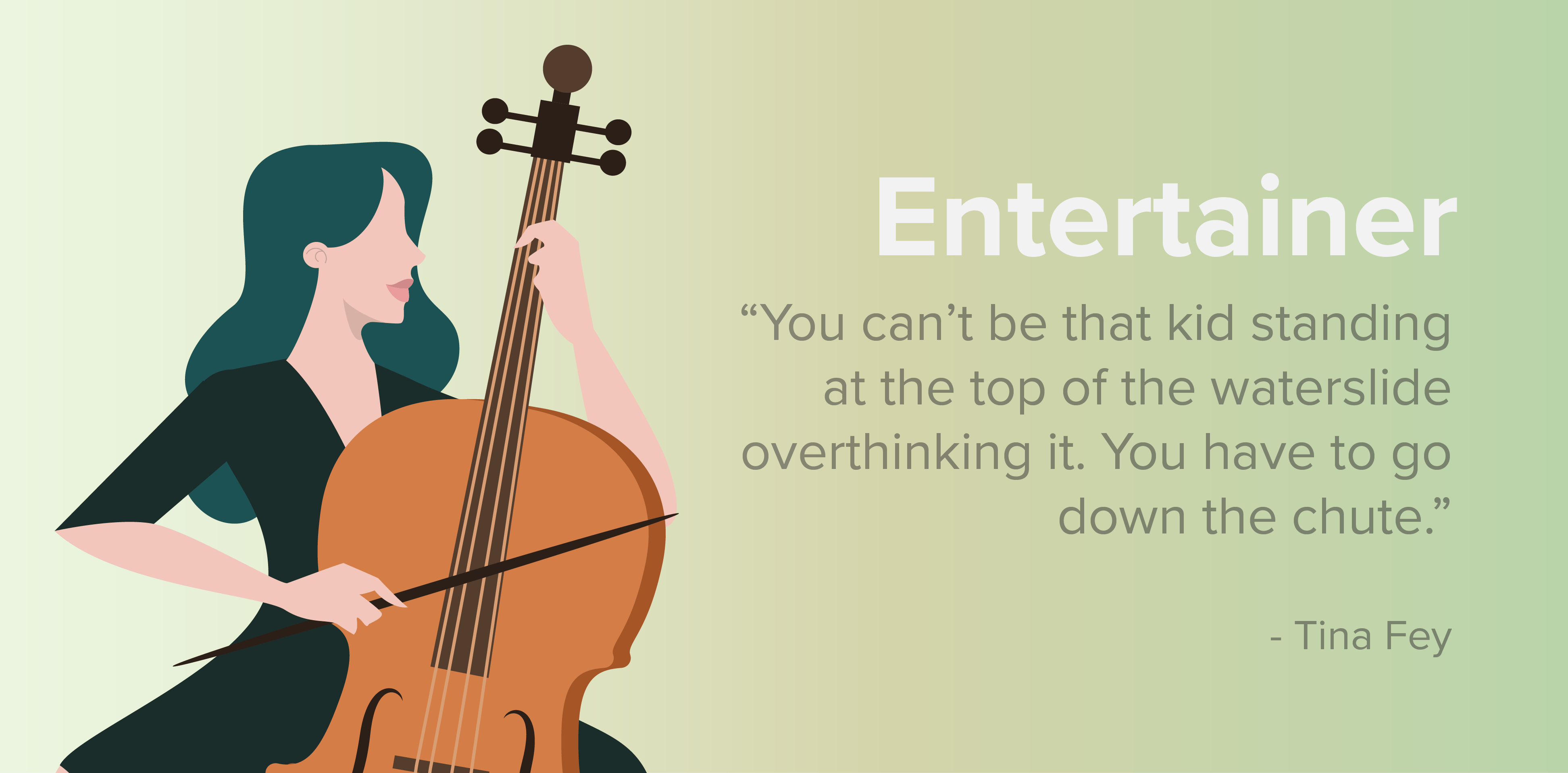
Quiz: What Type of Writer Are You?
Quiz: What Type of Writer Are You?
Kelsey Raymond, COO • Intero Digital • August 16, 2021

If you’re reading this, you’re probably already a content pro.
Unfortunately, even people who’ve been practicing content marketing for years can get so wrapped up in strategizing and producing content that they mistakenly suck all the artsy goodness out of their writing. The result is forgettable content.
Don’t let this be you! If you really want to produce great content and contribute that great content to online publications, you need to get in touch with your inner writer.
Hey, nobody panic — you don’t have to buy a Moleskine notebook, retreat to a cabin in the woods, or stop shaving.
Take this quiz to learn how to infuse your unique style into your content.
Jot down your answers as you go, and enjoy these nuggets of writing wisdom.
Process
Writers are weird about their process — it’s probably the tortured artist in them. Truman Capote supposedly wrote lying down with a glass of sherry in hand, and Jack Kerouac wrote “On the Road” by feeding a 120-foot roll of tracing paper into his typewriter and composing without chapter or paragraph breaks.
1. Which best describes your writing process?
A. I brainstorm to find an article topic, create an outline, write, and revise.
B. I always start with a topic in mind, but I usually have to rein myself in.
C. Process? What process? I go wherever inspiration takes me!
If you answered A, I give you snaps. If not, a little organization beforehand can give your content a logical structure to make it easily digestible.
If the idea of creating a content workflow and producing a detailed outline gives you horrible flashbacks to middle school English, just jot down a list of three to five ideas you want to hit in your article. When you know where you’re going, you’ll write faster and produce more organized content.
Style
Style reflects a writer’s personality, voice, and how they perceive their audience. Earnest Hemingway’s short, direct style has been emulated by budding writers for decades. In fact, there’s even an app that can help you write more like Hemingway.
2. Which best describes your style?
A. Straightforward, clear, minimalist
B. Literary, expressive, poetic
C. Stream-of-consciousness
3. Why would people like your writing?
A. It’s organized, easy to understand, and educational.
B. I’m a great storyteller.
C. My sparkling personality, of course.
If you are a minimalist (A), your prose is probably very easy to understand, but your readers may miss out on details that could have enriched your writing. To achieve power through brevity, apply one of Hemingway’s reporting rules: Use vigorous English. This means using words that do a lot of heavy lifting for you. (Just don’t make up words to sound intelligent.)
If you answered B, you probably do a great job painting a picture, but your ideas may get buried in longwinded sentences. Check out “On Writing Well” by William Zinsser (chapters 2 and 3) to learn how to distill your writing down to the essentials.
If you answered C, you’re a rebel who can’t be tamed. You may find yourself going down a rabbit hole and forgetting what you were originally writing about. You need the structure of an outline (and a content team with a great editor or two on board), but your natural charisma on the page will make readers love you.
Inspiration
All great writers agree: You have to read if you want to write. Whether it’s fiction, nonfiction, news, or a combination, the things a writer reads get absorbed into their writing.
William Faulkner once said you should read everything — trash, classics, the good, and the bad — to study what other writers are doing.
4. What do you usually read?
A. News and industry publications
B. Everything! Fiction, nonfiction, and industry news
C. Mostly fiction
5. Which do you prefer to include in your articles?
A. Timely industry examples and research
B. A personal story
C. Witty pop culture references
If you primarily rely on research and industry news to give your articles an interesting hook, try incorporating a personal story or a real-life example to show these insights in action. It will make your content more memorable.
If you have trouble coming up with good examples, try Penzu, a personal diary tool that will send you a daily email to remind you to record your thoughts. It’s totally private and is accessible from all of your devices. You can also use a “knowledge bank” to jot down notes, ideas, and insights that you can use in your content.
Nuts and Bolts
6. What’s your grammar philosophy? (Yes, you can have one.)
A. I’m a stickler for grammar.
B. Meh. I could take it or leave it.
C. I love knowing the rules because it makes it easier to break them.
Believe it or not, your view on grammar says a lot about you as a writer. Hemingway was a grammar traditionalist, whereas David Ogilvy liked to write copy in everyday vernacular. Kurt Vonnegut just hated semicolons.
7. Is it OK to swear or make jokes in your articles?
A. No. I like to appear professional.
B. Jokes? Yes. Swearing? No.
C. Hell yeah!
While this might seem like a just-for-fun question, it’s actually reflective of your writing style.
You don’t need to start dropping F-bombs or cracking knock-knock jokes — in fact, I advise against it — but if you have a strictly serious policy for your content, ask yourself why.
Even if you’re writing for a highly traditional audience, a little humor never hurt anyone. Readers are human, after all. For most publications, I encourage our writers to include jokes or humorous asides when appropriate (and when they fit with the overall tone) because it makes the author seem more relatable and interesting.
I know the suspense is killing you, so tally up how many questions you answered with A, B, and C to learn what type of writer you are.
If you answered mostly A’s, you’re a Model Citizen.

Model Citizens are a natural fit for the education, health, legal, and science industries because their writing tends to be organized, researched, timely, and accurate. Model Citizens often find themselves in leadership roles and have the ability to identify important new trends.
Occasionally, Model Citizens’ writing may be too dry or slim in personal experiences because they worry about sacrificing professionalism or credibility. However, Model Citizens shouldn’t be afraid to make a joke or tell a story — especially when they’re trying to reach entrepreneurs, marketers, or Millennials.
By writing to an audience of one (imagine you’re writing to a good friend) and reading their writing aloud, Model Citizens can make their writing more intimate and conversational.
Writers we think are Model Citizens are Malcolm Gladwell and Michael Pollan.
If you answered mostly B’s, you’re a Storyteller.

Storytellers have a natural talent for relating to their audience on a personal level by sharing their experiences. Their writing tends to be empathetic, colorful, and entertaining, which makes their content memorable. They thrive in publications that allow them to write free-form and dive into the narrative.
Storytellers may occasionally struggle to provide unique advice for their audience and organize their thoughts. However, once they gain the confidence to impart the wisdom from their experiences, they create some of the best content out there.
Writers we think are Storytellers include Bill Bryson, J.K. Rowling, and Seth Godin.
If you answered mostly C’s, you’re a Non-conformist.

Non-conformists favor an improvisational style of writing and have a very distinct voice that shines through their prose. They have a rich inner thought life, so writing comes naturally. With their natural inclination toward humor and sarcasm, they relate well to younger readers and tech enthusiasts.
Non-conformists sometimes run into trouble when they lose sight of the audience they’re writing for, wander away from their main idea, or allow their cynicism to get the best of them. If they’re writing for an academic audience, they may have trouble toning down their writing.
However, writing an outline and teaming up with a strong editor can help these rebels organize their thoughts into reader-friendly pieces their audience will enjoy.
Writers we think are Non-conformists include Jack Kerouac, Chuck Palahniuk, and Mike Doberenz.
If it’s a draw between B’s and C’s, you’re an Entertainer.

Entertainers, like Storytellers, have a natural ability to connect with their audience by sharing (and often exaggerating) their personal experiences. They’re naturally funny and don’t take themselves too seriously. Entertainers like to draw inspiration from pop culture and relate well to a variety of audiences, especially entrepreneurs and young people.
Entertainers may struggle with restrictions and need some coaching to craft concise, well-organized articles. However, with a good editor and a little planning beforehand, they can create compelling original content that resonates with any audience.
Writers we think are Entertainers include Tina Fey and Stephen Colbert.
Of course, this test isn’t by any means definitive, and there are dozens — if not hundreds — of variables that determine what kind of writer you are. Model Citizens can tell a great story, and Non-conformists can write to an outline.
Don’t feel bad if you landed in one category but would like to be perceived differently, either. You can always start reading more material from writers you admire to help you internalize certain aspects of their style. For instance, I’m a Model Citizen/Non-conformist hybrid — go figure — but I’d like to become a Storyteller.
This test is just designed to give you some insight into where you stand so you can zero in on your unique strengths and weaknesses to enhance your content. Like it or not, you are a writer, so it’s time to start honing your craft!
